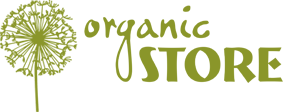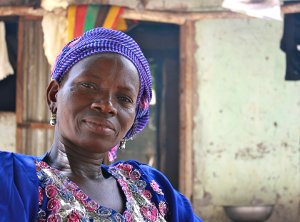 Who could think that traditional black soap made by West African women using shea butter and ash will become an extremely popular cosmetic product around the globe? African black soap has become a real hit and is now produced by many brands, mass market and luxury alike. How is black soap made and what are its main benefits?
Who could think that traditional black soap made by West African women using shea butter and ash will become an extremely popular cosmetic product around the globe? African black soap has become a real hit and is now produced by many brands, mass market and luxury alike. How is black soap made and what are its main benefits?
In chemistry, soap is a salt of fatty acids obtained by treating oils and fats with an alkaline solution. It has been used as a surfactant since ancient times. Thousands of years ago, people noticed that fat which has fallen into the ashes from the fire becomes an excellent detergent. They started using it for washing, bathing and cleaning. Later, people learned to produce soap-like materials themselves using available ingredients. For instance, a Babylonian clay tablet contains a formula of soap consisting of water, cassia oil, and alkali. Ancient Romans used tallow (beef or mutton fat) and ashes to make soap. The manufacture of soap was widespread in the Islamic word. By the way, the word “alkali” is derived from Arabic “al-qaly” or “ashes”.
In Africa, the available soap ingredients included ash of locally harvested African plants and various oils and fats such as shea butter, cocoa butter, palm oil. Women sun-dried the plant matter (palm tree leaves, plantain skins, shea tree bark, cocoa pods) and burnt it to ash. Then they added water and oil, cooked the mixture until it solidified, and hand-stirred it for at least 24 hours. Next they scooped the soap and let it cure.
The process is pretty much the same today. In Ghana and other West African countries, women still make black soap using secret family or community recipes that have been handed down from generation to generation. After being introduced to Western markets, African black soap has become an extremely popular skin care product due to its numerous benefits. What is the secret of its popularity?
Traditional black soap is made with a carefully selected blend of all-natural ingredients. Although each artisan uses their own recipe, the basic ingredients are the same. They include plantain skins, palm ash and shea butter. Palm ash and plantain peel act as the soap’s alkaline base. Shea butter is a common ingredient in many cosmetic preparations. It excellently nourishes and moisturises the skin, helps to keep it hydrated, and protects it from UV rays.
African black soap is 100% natural, it doesn’t contain any synthetic ingredients such as artificial surfactants and preservatives. It stands out among mass market soaps stuffed with all sorts of synthetic fragrances, colourants, emulsifiers and other ingredients, some of which are completely useless and even harmful because of their potential irritating effect. Most black soap present at the market is handmade and then sold according to the fair trade and ethical consumerism standards.
As we’ve already mentioned, African black soap is typically made by women from West African countries, especially Ghana. They often team up and form communities and cooperatives which partner up with foreign manufacturers and distributors. Ethical companies don’t just buy their products, they help local women develop self-sustaining businesses and increase their income.
Among the best known cosmetic brands which offer African black soap made according to traditional recipes are Dudu Osum (also known as Dudu Osun) and Nubian Heritage. Both brands offer traditional skin and hair care products formulated with certified organic oils and other natural ingredients such as palm leaves, plantain skins, cocoa powder, and herbal extracts. Each brand has its fair share of devoted fans.
Nubian Heritage African Black Soap is one of the brand’s most popular products. Nubian Heritage is a New York-based company founded by two Nigerian-born street vendors, Nyema Tubman and Richelieu Dennis, who were fresh out of college and couldn’t find another job. The recipe of the soap was provided by Richelieu’s mother, Mary.
African black soap by Nubian Heritage is formulated with a traditional soap base. Its exact composition is kept secret, but the manufacturer claims that it contains palm ash, plantain peel, tar and tamarind extract. Other ingredients contained in the soap include shea butter, coconut oil or palm oil, aloe leaf juice, vitamin E, vegetable glycerin, and ground oatmeal which gives the soap light exfoliating properties.
Nubian Heritage African Black Soap helps to minimize the appearance of skin imperfections and even to treat some skin conditions such as psoriasis and eczema. It deeply cleanses pores and prevents irritation, inflammation and acne. The soap normalises sebum secretion, helps to keep the skin blemish free, improves complexion, provides a detoxifying and healing effect. The product is suitable for all skin types, ages and genders. A large soap bar lasts really long, saving your money.
In our online shop Organic Store, you can buy Nubian Heritage African Black Soap at an affordable price. Besides, we offer other soap bars produced by the brand including Coconut & Papaya Soap, Lemongrass & Tea Tree Soap, Mango Butter Soap, and Raw Shea Butter Soap.
Natural Soap in Our Store
Home Doctor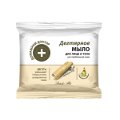 Tar Face & Body Soap, 70 g |
Home Doctor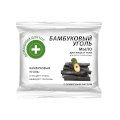 Bamboo Charcoal Face & Body Soap, 70 g |
Home Doctor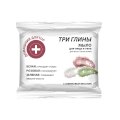 Three Clays Face & Body Soap, 70 g |
